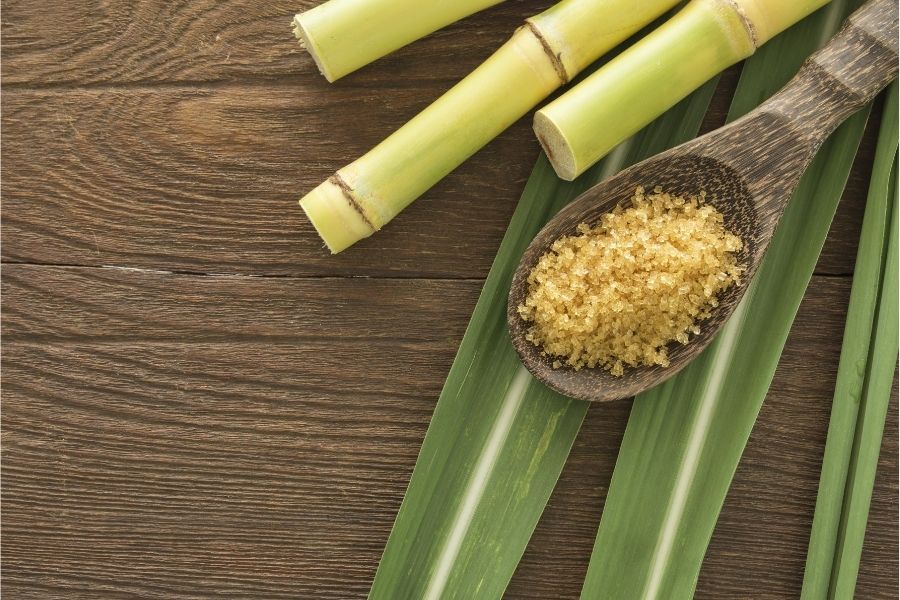Cane Sugar Processing Explained: What Occurs Inside a Sugar Mill
Cane Sugar Processing Explained: What Occurs Inside a Sugar Mill
Blog Article
A Thorough Introduction of the Wellness and Economic Ramifications of Walking Cane Sugar Processing on Regional Communities
Walking cane sugar handling plays a crucial role fit the financial landscape of regional areas, supplying employment chances and promoting supplementary sectors. However, the wellness implications connected with high sugar consumption can not be overlooked, as they add to increasing rates of weight problems and diabetic issues. This nuanced vibrant invites a critical examination of how areas can enhance financial gains while addressing journalism wellness obstacles they encounter. The exploration of sustainable practices and academic efforts may simply hold the trick to fixing up these contrasting rate of interests. What methods might communities apply to achieve this equilibrium?
Financial Benefits of Walking Stick Sugar Handling
Cane sugar processing supplies considerable economic advantages that extend beyond the prompt agricultural industry. The growing and handling of sugarcane produce many work opportunities, from farming to manufacturing and circulation. This work generation not only sustains local economies however also promotes neighborhood advancement by offering secure income resources for family members.
Moreover, the sugar market stimulates secondary businesses, including transportation, equipment supply, and packaging services (Cane Sugar Processing). As these markets expand, they add to a much more robust financial framework, enhancing general area durability. The export capacity of processed cane sugar even more enhances financial benefits, placing areas as competitive gamers in worldwide markets
Financial investment in contemporary handling facilities can lead to increased efficiency and efficiency, thereby lowering waste and enhancing resource use. This change not just profits the neighborhood economic situation however additionally supports sustainability efforts by lessening environmental impacts.
Additionally, the profits generated from cane sugar handling can be reinvested in local framework, education, and medical care, promoting all natural neighborhood development. Overall, the economic benefits of walking cane sugar processing are multifaceted, supplying a foundation for sustaining success in farming regions.
Health Dangers Related To Sugar Usage
Extreme sugar intake postures significant health dangers that warrant serious focus. High intake of included sugars, particularly from processed foods and beverages, has been connected to numerous health complications. Among one of the most pressing problems is excessive weight, as sugary diet regimens contribute to an enhanced caloric intake without offering essential nutrients. This extra can cause metabolic disorders, consisting of kind 2 diabetes mellitus, which has come to be progressively common in both adults and children - Cane Sugar Processing.
In addition, high sugar intake is related to cardio illness. Raised blood glucose levels can cause insulin resistance, a forerunner to various heart-related issues. Furthermore, sugar can have detrimental impacts on dental health and wellness, causing dental caries and periodontal condition, as microorganisms in the mouth thrive on sugar, generating acids that wear down tooth enamel.
Furthermore, emerging research study suggests a possible link between high sugar intake and psychological health disorders, such as clinical depression and anxiousness. As areas grapple with these health and wellness risks, it ends up being vital to advertise recognition and motivate much healthier nutritional options. Attending to sugar usage is essential not just for specific health and wellness but also for the overall wellness of local areas, highlighting the requirement for detailed public health techniques.
Ecological Impacts of Sugar Manufacturing
Regularly overlooked in discussions about sugar's effects is the significant ecological impact of sugar production. The growing of sugarcane often demands comprehensive land use, leading to deforestation, loss of biodiversity, and disruption of local ecosystems. The conversion of woodlands and marshes into sugar vineyards can result in environment devastation, harmful countless types and changing environmental balance.
Additionally, sugar manufacturing is resource-intensive, consuming significant quantities of water for irrigation. review This can cause depletion of neighborhood water resources, adversely influencing both agricultural practices and neighborhood access to clean water. In addition, making use of chemical fertilizers and chemicals in sugarcane farming can add to dirt degradation and water pollution, as runoff from these chemicals enters close-by rivers and lakes, impacting marine life and human health and wellness.
The ecological footprint encompasses the handling phase, where power usage and waste generation more intensify environmental issues. Air contamination from shedding sugarcane fields, along with greenhouse gas emissions, add to environment modification. Thus, link the ecological effects of sugar production warrant significant consideration, prompting stakeholders to adopt even more lasting methods to alleviate these unfavorable impacts on neighborhood ecological communities and communities.
Job Development and Community Advancement
The ecological challenges positioned by sugar manufacturing are typically counterbalanced by its possibility for economic benefits, specifically in task production and area development. The cane sugar industry functions as a substantial resource of work in several country locations, offering tasks throughout different ability degrees, from farming labor to handling and circulation duties. This work not only supports individual families yet additionally adds to the total financial vigor of local areas.
Furthermore, the facility of sugar processing centers stimulates secondary services, such as transportation solutions, tools supply, and maintenance carriers. As these organizations flourish, they develop extra jobs and boost regional economic situations. The income generated from the sugar market also causes enhanced tax obligation profits, which can be reinvested right into area services such as facilities, education, and medical care development.
Moreover, the sugar sector usually participates in community advancement efforts, such as sustaining local schools and health and wellness programs, thereby improving the lifestyle for residents. By promoting strong community ties and advertising economic growth, the walking stick sugar handling sector plays a crucial function in uplifting neighborhood populaces, making it an important element of sustainable growth methods in sugar-producing regions.
Harmonizing Health And Wellness and Economic Development
In navigating the complexities of walking cane sugar processing, a critical difficulty depends on balancing health and wellness considerations with economic development. The sugar industry substantially adds to neighborhood economies by creating tasks, stimulating relevant markets, and boosting tax earnings. However, the wellness implications connected with extreme sugar intake can lead to persistent illness such as obesity, diabetic issues, and cardio problems, which can concern public wellness systems and decrease workforce performance.

Moreover, governing structures can play a critical duty in guiding market methods towards more health-conscious and sustainable approaches. By cultivating cooperation in between government bodies, health organizations, and the sugar market, neighborhoods can browse the duality of wellness and economic growth, making sure that the advantages of cane sugar handling are equitably shared while focusing on public wellness.
Final Thought
To conclude, the handling of walking cane sugar offers both substantial financial benefits and noteworthy health and wellness dangers for regional neighborhoods. While it fosters job creation and stimulates regional growth, the involved health and wellness issues, particularly concerning excessive weight and diabetes mellitus, demand a cautious balancing act. By promoting accountable usage and investing in community education and lasting practices, it is possible to maximize financial advantages while reducing damaging wellness impacts, thus guaranteeing a much healthier future for neighborhood populations.
Furthermore, sugar can have harmful impacts on oral wellness, resulting in tooth cavities and gum tissue disease, as microorganisms in the mouth thrive on sugar, generating acids that wear down tooth enamel.
Attending to sugar intake is essential not only for specific wellness however likewise for the overall wellness of regional neighborhoods, highlighting the requirement for comprehensive public health methods.
Frequently forgotten in discussions concerning sugar's effects is the considerable environmental impact of sugar manufacturing. The wellness ramifications linked with excessive sugar usage can lead to chronic conditions such as excessive weight, diabetes, and cardio issues, which can worry public health systems and decrease workforce productivity.

Report this page